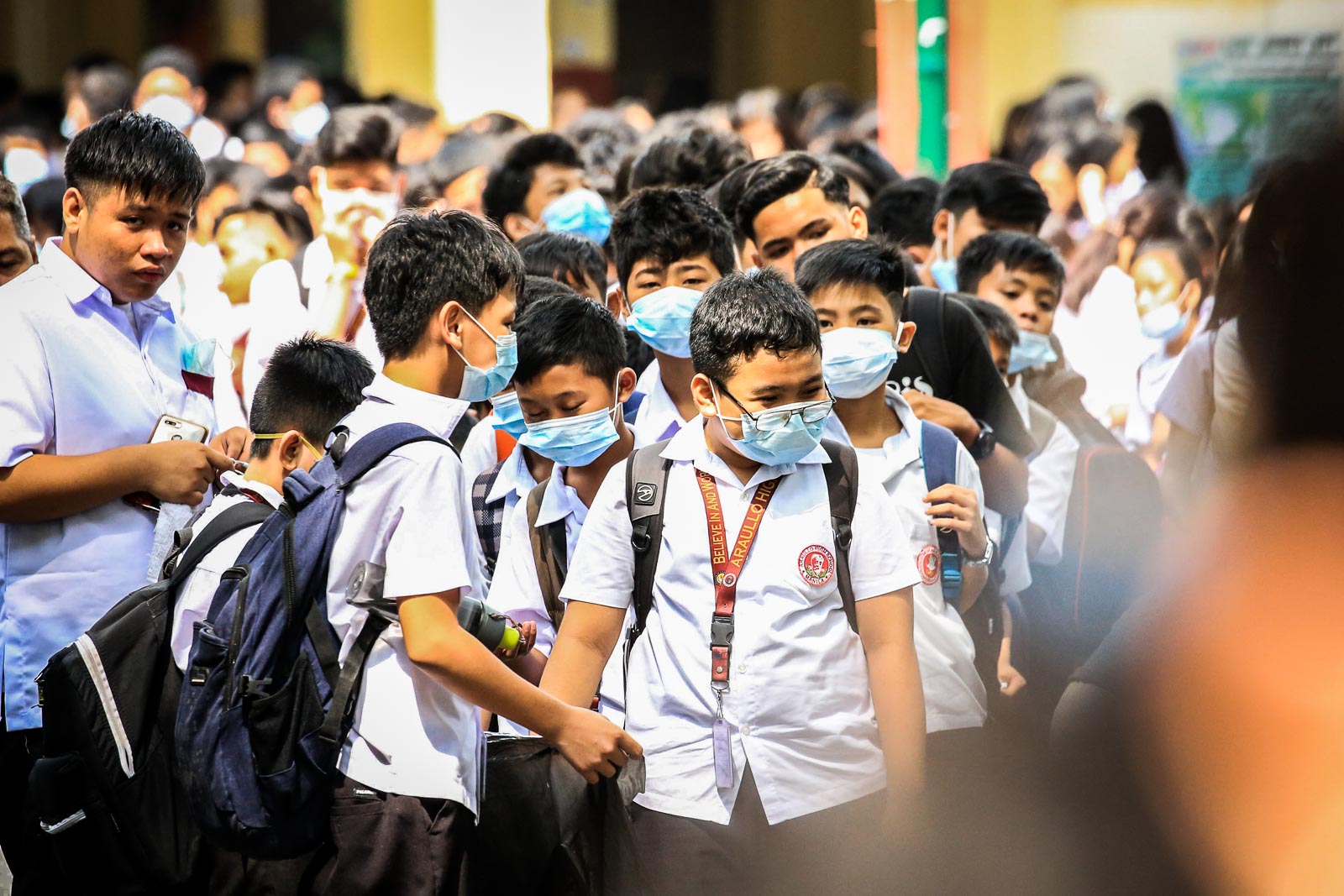The proposal of the Department of Education (DepEd) to push through with limited face-to-face classes in areas considered to be low-risk in COVID-19 transmission has been approved by the current president Rodrigo Duterte. The approval was made even after his previous announcement that physical classes will not push through; until a vaccine against the pandemic has not been found.

In the latest Inter-Agency Task Force for Management of Emerging Infectious Diseases (IATF-MEID) meeting; Education Secretary Leonor Briones proposed conducting limited face-to-face classes in areas deemed to be low-risk.
For basic education, we are saying maybe we can allow limited face to face learning but to be strictly regulated in the light of present conditions.”
Read: Scholarship for High School and College Offered to Descendants of Korean War Veterans
Closing inequality gaps
The proposal of limited face-to-face classes will “close inequality gaps” according to Briones. She said that depending on online learning will cause an equity problem for those who do not have the means to access digital equipment.
Because if we rely heavily on online learning, then you will have an equity problem for those who do not have access to digital equipment. I am with you on this. Let’s try to make it productive even how constricted the times are. Okay ako (I am okay with this).”
The presidential spokesperson, Harry Roque, also gave confirmation as to the president’s approval despite having previously stated that physical classes will be prohibited unless a vaccine has been made available.
Read: Hire Filipinos First — Senator Hontiveros called on Malacañang
Stricter Measures
Meanwhile, Education Secretary Leonor Briones made the acknowledgement that physical classes will pose health risks; this is why limited face-to-face classes will only be held at low-risk areas; areas that are under the modified general community quarantine (MGCQ).
The classes, which will resume on Aug. 24 and last until January, will be conducted on a “case-to-case basis” and will abide by the advice of the government’s COVID-19 task force. Both the DepEd and the task force will also conduct joint inspections; which will be to assess the capability of the schools to reopen for physical learning.
We were thinking that up to January 2021, during the third quarter, we can start allowing between August and at present, we will be assessing the schools. Secretary Galvez advises us to make physical inspections of the facilities of the schools. So we can do it up to January.”
Read: Enrollment Extended Until July 15, Joint Decision by Malacañang and DepEd
School Inspections Are a Must
Briones reiterated that schools will have to be inspected first before being allowed to open. However, without giving specific information about when these will take place, she said that schools in low-risk areas can open.
It’s not automatic [that if] you’re in low-risk areas you’re allowed to open. No, [the schools will] have to be inspected.”
Stringent health protocols will also be in place. One of them including the discourage of holding classes in airconditioned classrooms to further prevent the transmission of the disease. Public schools, which mostly facilitate air ventilation with electric fans, will not have this problem.
In the meeting, the DepEd Secretary urged local governments to sanitize public schools and follow health protocols. Duterte approved Briones’ proposals.
Disparity Between Children and Adults
Briones claimed that local government units (LGUs) and international schools have been forwarding requests to the department upon being allowed to hold face-to-face classes.
The department secretary assured, however, that physical learning will only be limited to one to two days a week.
If there is face-to-face, it will not be for the entire five days of school week; it could be one day or two days and the sessions could be limited to the most important things that a child should learn.”
Read: Internet Access to More Than 7,000 Public Schools, Approved
Briones also said that children are not as badly affected by the coronavirus as adults. “Of the total confirmed cases, 67,456, only 2,832, most of them mild or 4.20% are children,” Briones said, adding that there have been 16 deaths of children due to COVID-19 as of July 19.
Economy Downturn
The DepEd chief however acknowledged that “downturn” of economy has affected families and enrolment turnout.
There has been a recorded 77% of total enrolment as compared to last year. In public schools, they recorded 90%, but in private schools, only 27% compared to last year’s numbers have enrolled.
Briones said they call it a “phenomenon” of migrating to public schools. This is due to the fact that parents have lost their jobs upon the economic downturn; as an effect, they are essentially unable to fund the studies of their children.
This is because Mr. President the private schools have been affected by the downturn of economy parents lose their jobs, cannot fund the studies of their students.”
Do you agree with the approval of limited face-to-face classes in low-risk areas? Furthermore, do you think it’s going to be safe for both students and school workers?
